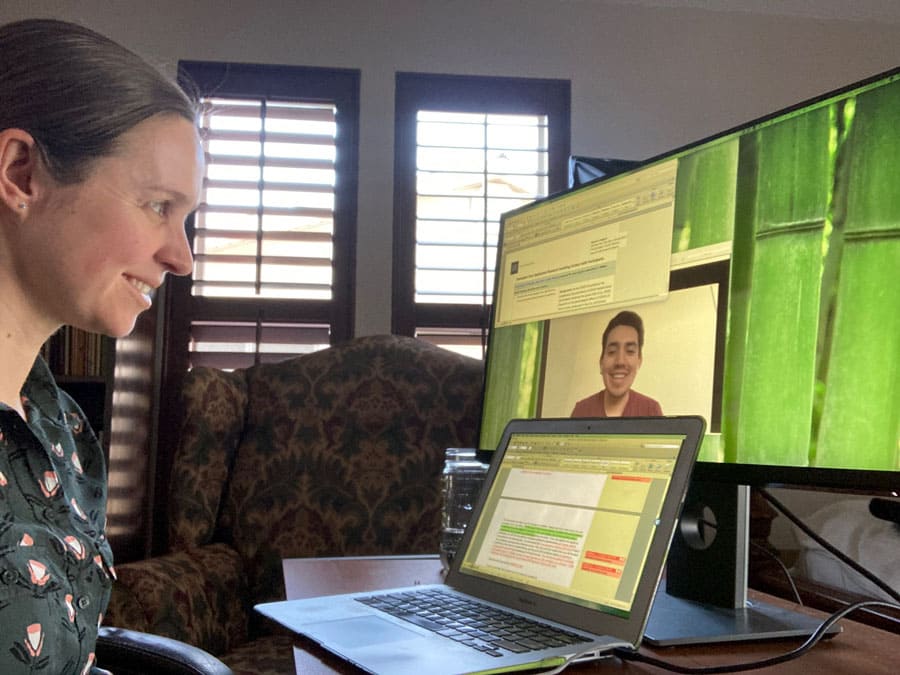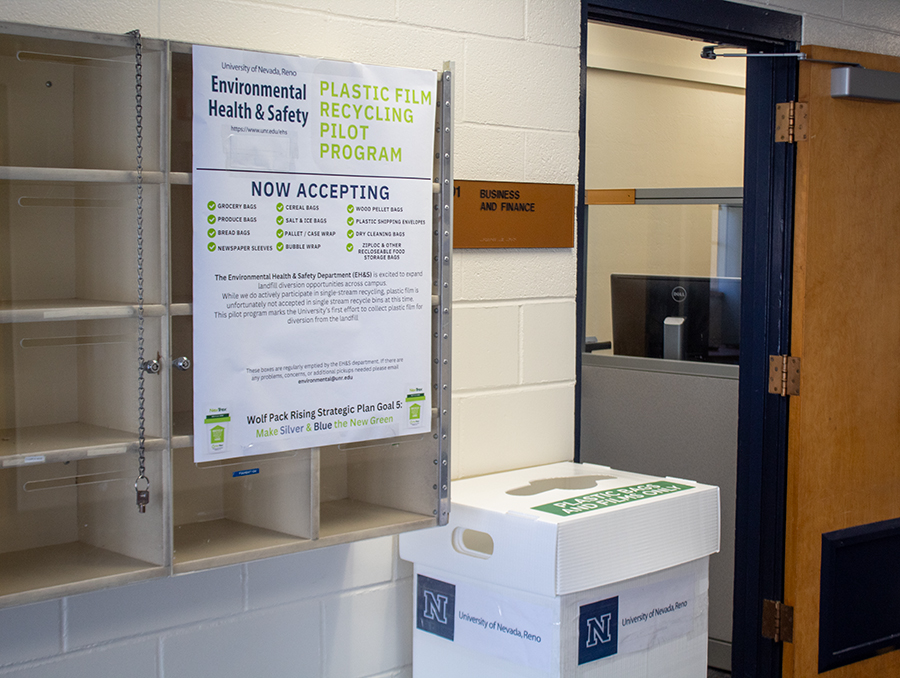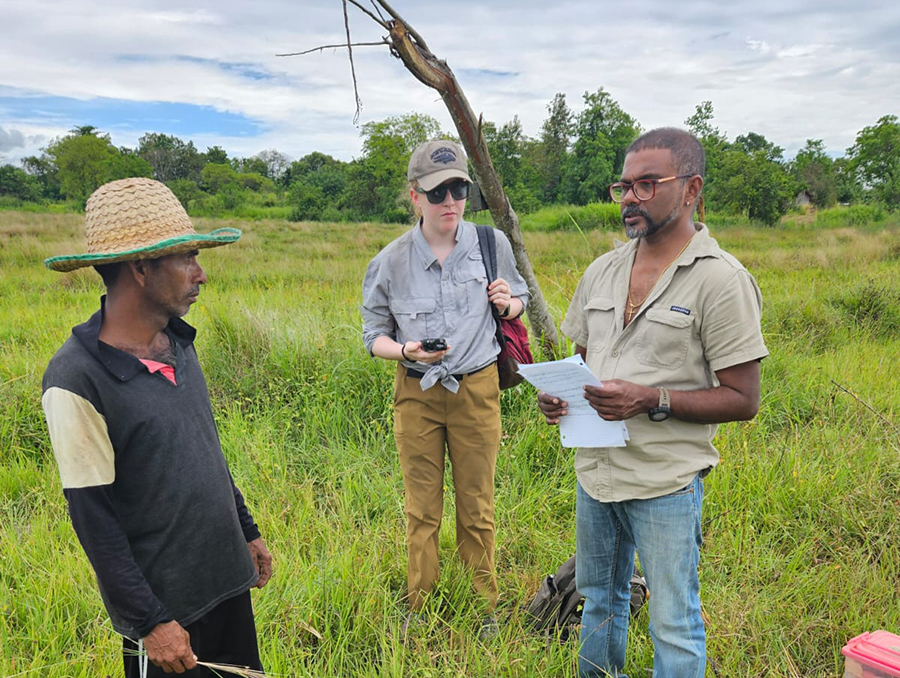With programs specifically aimed at undergraduate students, Undergraduate Research offers opportunities to gain paid professional experience and contribute to science and communities through the creation and completion of research projects.
There are four different research programs that students can apply for: the Pack Research Experience Program (PREP), Community-Based Research Experience, Nevada Undergraduate Research Award (NURA) and the Honors Undergraduate Research Award (HURA). Research awards are paid positions, with students earning $12 per hour for their work during the award cycle.
PREP is a research opportunity that is designed specifically for freshman and sophomores and prioritizes students from historically underrepresented communities or first-generation students. Due to additional funding in 2020 from the Research & Innovation division, the number of faculty mentors involved in this program doubled, meaning the research opportunities available for students doubled as well.
The Community-Based Research Experience offers students the opportunity to partner with a local agency or non-profit and perform an applied research project that can directly impact the organization’s evaluation or service capacity.
The NURA is available to all students. For this program, students must submit a proposal for funding their academic research, scholarship, or creative activity. The HURA works similarly, but is specifically for Honors students.
Tanya Kelley, the director of Undergraduate Research, said she hopes the availability of these programs will encourage all kinds of undergraduate students from all backgrounds and disciplines to get involved in research.
“[These programs] are all really exciting because they all hit a different niche,” Kelley said. “What we want to do is make sure that we’re providing research opportunities that are of value no matter what grade you’re in, or what experience level you have.”
Kelley also emphasized that support is available to students considering any of these opportunities. She added that there are no limits on how often a student can apply for their undergraduate research programs, and funding opportunities are available each semester.
“[Students] should feel very comfortable reaching out to me and my entire office,” she said. “Our mentoring can start the very first day they’re interested in looking at our programs. I’m happy to talk them through options, go over details...I can really help guide them to what is the right fit for them.”
Catie Polley, a sophomore at the University of Nevada, Reno with a major in sociology, received the Community-Based Research award. In partnership with OUR Center, the goal of her research project is to assess the needs of LGBTQ+ seniors in the area, so that they can be better served in the future.
Although Polley had no prior research experience outside of her classes, she said that the support she received from her mentor, Marta Elliott, a professor and the current chair of sociology at the University, has made her more confident in her abilities.
“I would say [Elliott] has probably been the most invaluable resource,” Polley said. “Me stepping into this position, being just a second-year student and not knowing how to do research and her guiding me along that path...I’ve been entirely grateful for that over the past several months.”
Elliott explained how mentoring Polley has been a positive experience for her as well.
“Catie’s passion and excitement about this, and her commitment to learning more about seniors,” she said. “I have never seen a student be so thrilled and excited and committed.”
Erick Herrera, a senior with a major in neuroscience at the University, received the HURA. Through his project, he seeks to discover if acts of kindness can be used to reduce the stress that can come with the COVID-19 pandemic.
Like Polley, he expressed how much he valued the support of his mentor, Cynthia Lancaster, an assistant professor of psychology at the University.
“[Lancaster has] been an amazing resource. She’s an expert in her field, and every time we meet, I see why she’s an expert,” Herrera said. “I knew very little about actually performing an experiment in the real world. But actually going through the process, getting the approval, and knowing how to go about things, she’s been an amazing help in doing that and guiding me.”
Lancaster said being a mentor for Herrera has been fulfilling not only because of the project’s potential, but also because of how she has seen him grow.
“It’s a particularly meaningful aspect of my work at the University,” she said. “I’m trying to do my part in training the next generation of scientists, and having that kind of potential to be a part of the growth of that next generation...is really an amazing process.”
Both student researchers also described the numerous benefits they have gained from undertaking a research project. In general, the students shared how research is providing them with a multitude of professional and academic skills that they can use in their future careers.
Since Herrera plans on going into medicine after graduating, he said the skills he has gained will be instrumental to his future.
“There is an aspect of using [research] to complete my degree, but also preparing myself and preparing a lot of the critical thinking skills that are required to be in medicine,” he said.
For Polley, this research has been a great opportunity for her to get professional experience and determine what exactly she wants to pursue as a career.
“I’m not quite sure what I want to do in the future, but this project is a super important part of that journey in figuring out what I want to do.”
Another benefit Polley and Herrera mentioned is the feeling of personal satisfaction. Because both of their projects could contribute to the betterment of the community in different ways, they both said continuing their research was even more fulfilling.
“The thing that makes me most excited about this research is the potential that it has to make a difference in people’s lives,” Herrera said. “It doesn’t have to be this grand difference that cures anxiety or cures depression in somebody’s life, but just alleviating some of those symptoms of depression or some of the anxiousness in somebody’s life... that really brings me a lot of joy.”
Even though some undergraduate students may be hesitant at first to do research, Polley stressed that there are plenty of opportunities for students from different backgrounds and with different ideas to participate.
“Do it, do it, do it,” she said. “The only thing holding back students from doing it is fear; fear of not being good enough, not being the right person to do it, not having the right skills or knowledge to tackle certain topics. But who cares? I think that so long as you’re willing to listen and learn, and continue to educate yourself about what you’re doing and what you’re researching, that’s what matters.”















